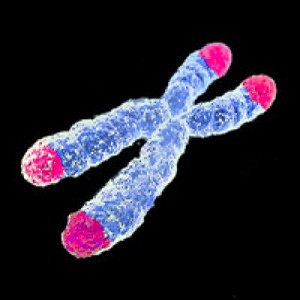I consider myself healthier than most women my age. I do a variety of physical activity, eat lots of vegetables and a balanced diet, meditate, and strive to limit the amount of time I sit at my desk. When I heard from a friend that I could learn my biological age, which is different from my chronological age, I had to check it out.
Your chronological age is based on your birth date, but your biological age shows how well your body is aging. In the past, I have taken online quizzes to get an idea of my biological age and whether or not the “lifestyle medicine” that I practice and preach is working. Online quizzes such as this are easy to find with a simple Google search, but most likely not as accurate as telomere testing.
Telomeres are sections of DNA found at each end of a chromosome. Humans have 46 chromosomes in most cells of the body. These chromosomes replicate—or copy themselves—when a cell divides, passing the genetic information they carry to the new cells. Telomeres form a cap that protects the ends of the chromosomes during cell reproduction. As described by Dr. John Axe, you can imagine a telomere as acting like the little plastic tip on a shoelace that prevents the shoelace from fraying. Without telomeres, important DNA could be damaged or lost every time a cell divides.
As we age, telomere length shortens. Two main factors contribute to this shortening. The first is sometimes called the “end replication problem,” which describes the shortening of the DNA strands every time a cell carries out replication. This shortening may account for the loss of as many as 20 DNA base pairs after one replication process. The second factor is oxidative stress, which is defined by Dr. Ananaya Mandal, as “an imbalance between the production of free radicals and the ability of the body to counteract or detoxify their harmful effects through neutralization by antioxidants.” Interestingly, oxidative stress accounts for a loss of approximately 50–100 base pairs per cell division. Lifestyle factors such as diet, smoking, obesity, and emotional stress may increase the amount of oxidative stress in the body. When telomeres get to a critically short length, the chromosomes may no longer replicate correctly, affecting cell function and the overall health of an individual.
This then begs the question, how do I maintain my telomere length and prevent aging? The enzyme, “telomerase” allows cells to multiply and avoid ageing. Telomerase is an enzyme that is found in high levels in germline cells (egg and sperm) and stem cells. As a result, these cells do not show the signs of ageing. Currently, there is much research around how this enzyme relates to cancer (telomerase is in high levels in cancer cells allowing them to replicate) and whether or not it also may be able to help treat conditions from severe burns to diabetes. However, understanding the functions of telomeres may not be the “end all and be all” to determining your age or risk for disease.
Health is not static. Your health can improve or worsen over time. Your telomeres can shorten or lengthen, too. According to Nobel Prize winner, Elizabeth Blackburn, telomere length can change in as little as a few months. “But it is really the long-term changes, over periods of a year to 10 years, that are going to be predictive of increased health span.”
This is similar to research in diabetes regarding “metabolic memory” or the “legacy effect” to describe the benefits of controlled blood glucose for long periods of time and the reduction of complications. As a diabetes educator, who is continually coaching about lifestyle medicine, the message that I want to convey is that your health can improve over time and to never give up taking steps toward a healthier lifestyle. In fact, many of my patients are healthier with diabetes than they were prior to their diagnosis because they are following healthier meal plans, incorporating physical activity into their daily routines, etc.
Testing your telomeres at any given time in your life will not give you detailed insights into your overall health. However, if you are eager to “live long and prosper,” the best way to slow the shortening of telomeres, and even potentially lengthen them, is to practice healthy lifestyle behaviors. Yes, most people want to swallow a “magic pill,” but it doesn’t exist—at least not yet. I truly believe no pill has the strength and power of a healthy, balanced meal plan and physical activity. That being said, I did get my telomere length tested, and I am glad to report that I am younger than my chronological age.
We all can make small changes to improve our health (for me, it is getting more sleep). Maybe it means eating more vegetables, reducing stress, or adding more physical activity to our daily routines. I think the message is that if you are not practicing “lifestyle medicine,” start doing so today. If you already practice healthy behaviors, keep at it, and look for ways to make even more improvements.
For more information see the reference below:
By Kirsten Ward, MS, RCEP, CDE
Cecelia Health Certified Diabetes Educator
If you are interested in more information on telomere testing listen to this podcast with Ben Greenfield and check out “Teloyears” https://www.teloyears.com/home/index.html
Please note, I am not receiving any promotional commissions or kickbacks recommending these resources.
Resources:
https://bengreenfieldfitness.com/2017/04/transcript-how-to-test-your-telomere-length/
https://en.wikipedia.org/wiki/Telomere
http://www.yourgenome.org/facts/what-is-a-telomere
https://draxe.com/telomeres/
http://www.news-medical.net/health/What-is-Oxidative-Stress.aspx
https://www.ncbi.nlm.nih.gov/pubmed/22650227
